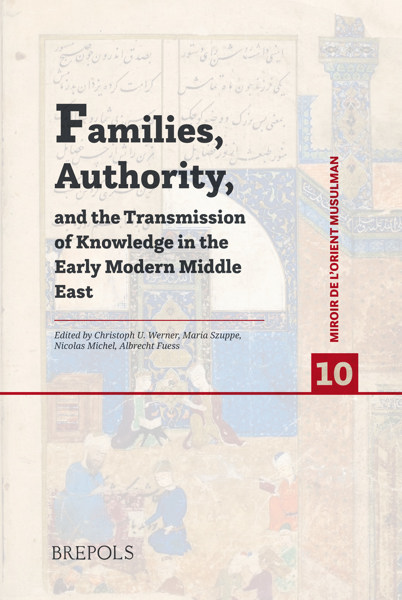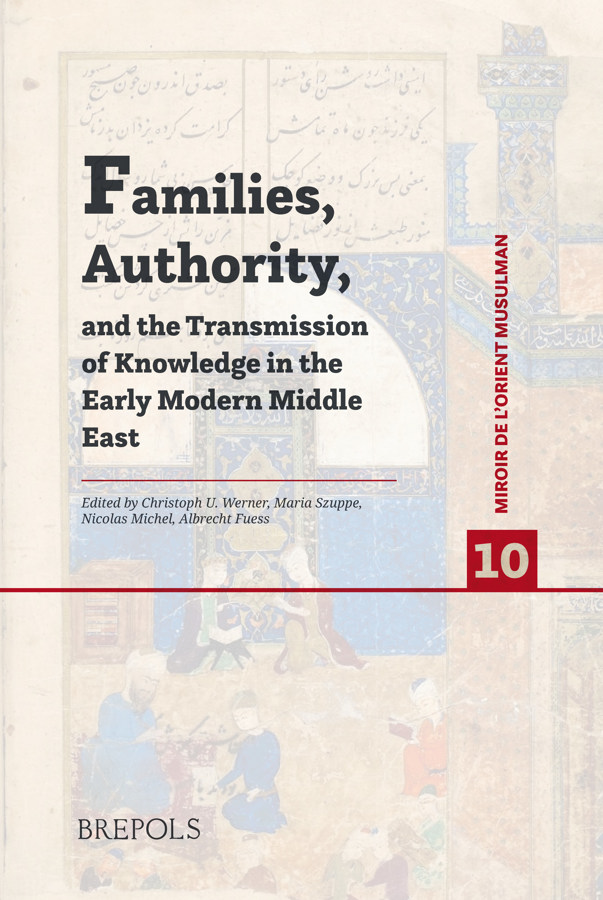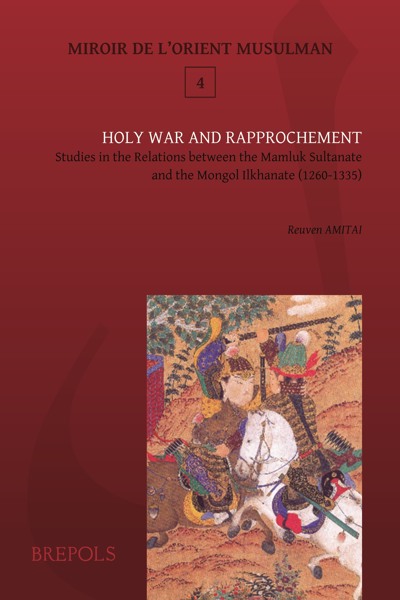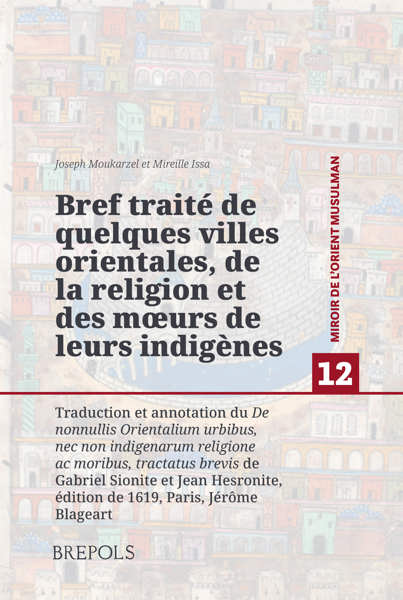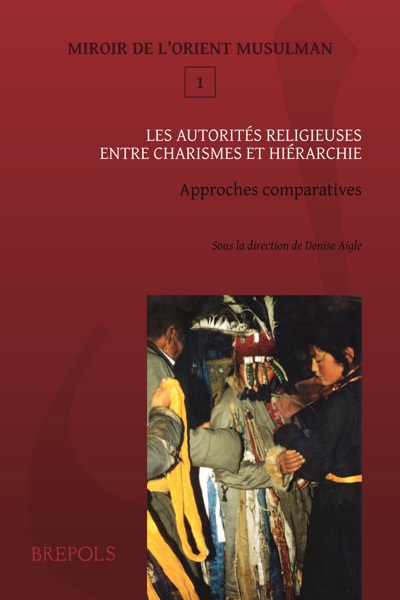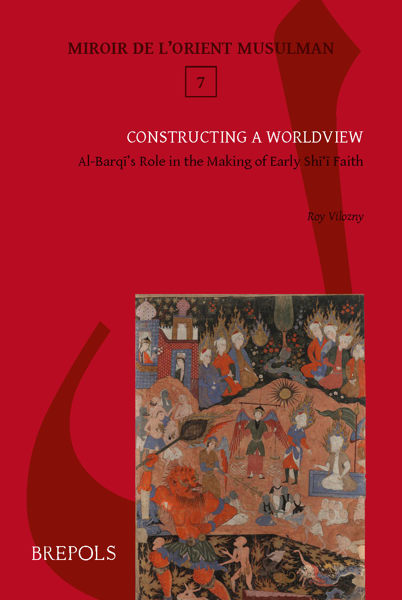
Families, Authority, and the Transmission of Knowledge in the Early Modern Middle East
Christoph U. Werner, Maria Szuppe, Nicolas Michel, Albrecht Fuess (eds)
- Pages: 334 p.
- Size:156 x 234 mm
- Illustrations:24 col., 4 maps b/w
- Language(s):English, French, German
- Publication Year:2021
- € 69,00 EXCL. VAT RETAIL PRICE
- ISBN: 978-2-503-59289-3
- Hardback
- Available
- € 69,00 EXCL. VAT RETAIL PRICE
- ISBN: 978-2-503-59290-9
- E-book
- Available
This collection of articles traces the themes of family and of transmission in the early modern Middle East from an interdisciplinary and comparative perspective.
The editors are renowned cultural historians of the Middle East: Christoph U. Werner holds the Chair of Iranian Studies at the University of Bamberg, Maria Szuppe is Directrice de recherche at the CNRS and director of CeRMI (Centre de recherche sur le monde iranien: Langues, cultures et sociétés de l’Antiquité à nos jours) in Paris, Nicolas Michel is Professeur d’histoire contemporaine at the University of Aix-Marseille, and Albrecht Fuess is Professor of Islamic Studies at the University of Marburg.
This volume brings together innovative contributions on the history and nature of families in the early modern Middle East, covering Central Asia, Iran, Ottoman Turkey and the Arab World from the fifteenth to the seventeenth century and beyond. It argues the importance of connecting the key concept of family in its widest possible meaning, whether descent group, lineage, household or dynasty, with the notion of transmission of knowledge, authority, status and power, and develops this idea through a pluridisciplinary and cross-regional approach. Based on primary sources in Arabic, Persian, and Turkish as well as art and material culture, the individual articles detail processes and dynamics of transmission, thus initiating a comparative dialogue.
Introduction
Religious Lineages and Knowledge Networks
Torsten Wollina, Family and Transmission of Knowledge in Mamluk and Early Ottoman Damascus
Adam Sabra, Narrating a Lineage’s Transition Crisis between Biography and Hagiography. A Case from Ottoman Egypt
Alberto Tiburcio, Converts and Polemicists as Bridges in Knowledge Networks. The Case of Safavid Iran
Kinship, Status, and Legitimacy
Sacha Alsancakli, Warriors, Kings and Caliphs: Questions of Origins and Dynastic Culture in Sixteenth and Seventeenth-Century Kurdistan
Syrinx von Hees, Wann fällt der Apfel nicht weit vom Stamm? Zeitpunkte familiärer Amtsübertragung in mamlukischer Zeit
Nicolas Michel, Families of Cairene Civil Servants, from Mamluk to Ottoman Times (Fifteenth-Sixteenth Centuries)
Marriage Alliances and Political Strategies
Albrecht Fuess, Ṣihr and Muṣāhara in Mamluk Royal Relations. Transmitting Power and Enlarging Networks Through In-Law Ties in Pre-Modern Egypt
Juliette Dumas, L’histoire du pacha exemplaire marié à une sultane extravagante. Genre, politique et récit intime à la cour ottomane au XVIIe siècle
Professional Lineages and Transmission
Sandra Aube, Family Legacy versus Regional Style: Tracing Three Generations of Woodworkers in Māzandarān (Iran, 1460s to 1500s)
Francis Richard, La formation d’un calligraphe dans le monde iranien
Managing Households and Family Estates
Christoph U. Werner, The Rażavī Sayyids of Mashhad: Families within a Family
Maria Szuppe, Documenting the Barnābādī Estate: Establishment and Growth of a ‘Saintly’ Family in Fifteenth to Eighteenth-Century Herat
Naofumi Abe, Creating a Family Property in Early Modern Iran: Socioeconomic Activities of Najafqulī Khān Dunbulī of Tabriz in the Eighteenth Century
